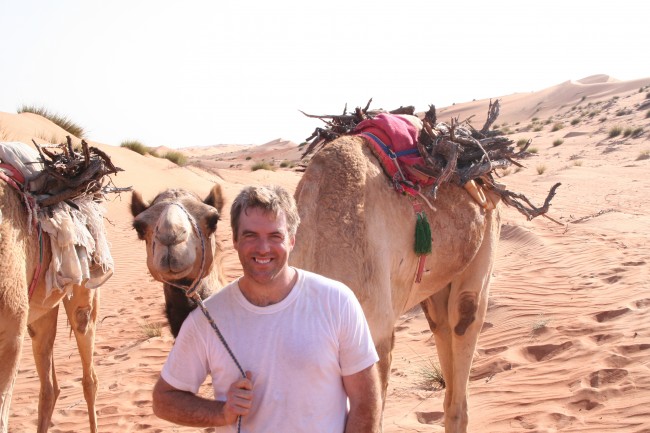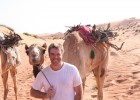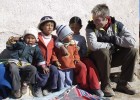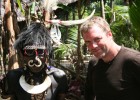Production Details
Throughout the World there are places so inhospitable that humans cannot survive there long term. This series is about what it’s like to live at the very edge of existence – where every day is a struggle and mistakes are punished by death. Donal MacIntyre has proved his bravery. He has proved his mental and physical strength. He has proved his athleticism. But can he prove himself to people who take extreme hardship for granted?
The Altiplano region of Bolivia is one of the highest inhabited places in the world where every breath is an effort. It is home to the Quechuan Indians who worship Mother Earth with blood sacrifices, both animal and human. Donal takes his chances at a Tinku festival where rival villages fight, sometimes to the death, in honour of Mother Earth and battles high altitude exhaustion as he struggles over mountain passes with a Llama train carrying salt to remote villages.
It hasn’t rained for six years and the temperature regularly tops 50°C in the Arabian Desert but the Bedouin still choose to live there rather than the comfort of a modern town. Donal moves in with the Al-Amri family on the edge of the Sharqiyah Sands in Oman and is quickly put to work milking goats, collecting firewood in a treeless desert, delivering dates on a three-day camel trek and riding the family’s prize camel in a death-defying race meeting.
Off the coast of Borneo, Donal tracks down the Bajau Laut, a tribe of sea gypsies who are born, live and die on their boats, barely ever setting foot on land. They are true nomads who belong nowhere but the sea and have never been filmed before. Donal joins a family of 20 on their crowded boat where he must pay his way by free diving for fish. The sea gypsies can stay under water for minutes at a time but, as Donal discovers, it can be deadly dangerous.
The Insect Tribe of Papua New Guinea were unknown to the outside world until 50 years ago and have a reputation as fearless crocodile hunters. Donal joins the warriors on a terrifying night-time hunt in dugout canoes, where the tribesmen think nothing of spearing crocodiles as big as their canoes. The tribe still uses seashells for money, but things are changing fast as the 21st century encroaches on their lives.



